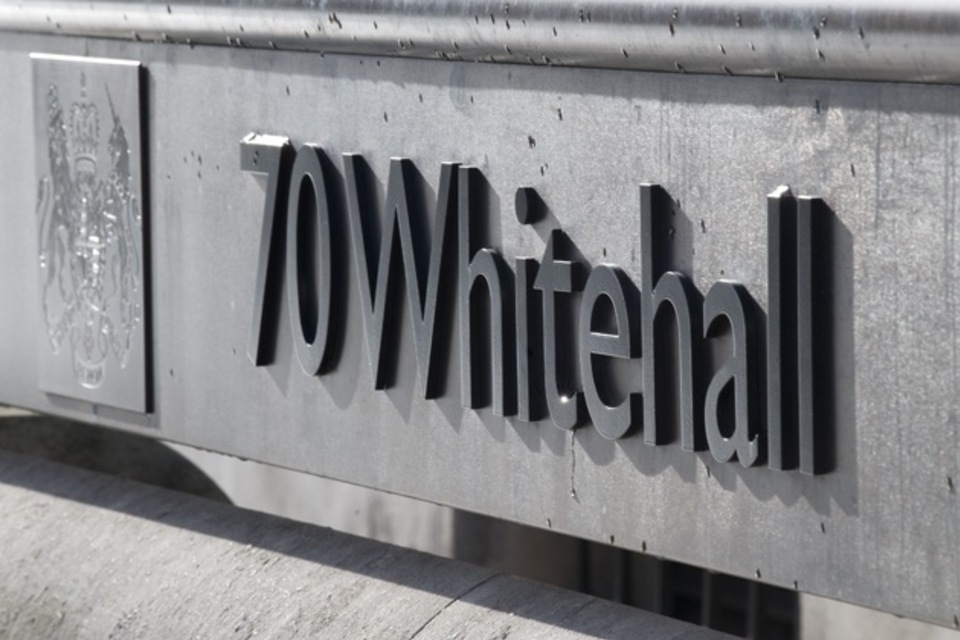From January to March 2023, the federal government consulted on proposed laws to assist quick, secure and safe knowledge sharing between departments to allow individuals to extra simply entry public providers on-line.
The proposed laws will allow more practical on-line id verification when accessing authorities providers. This consists of permitting checks in opposition to a broader vary of trusted knowledge held by related public our bodies. It should imply that individuals who at present can’t entry authorities providers on-line might be ready to take action.
The proposal will assist the roll out of the brand new cross-government GOV.UK One Login system. GOV.UK One Login permits customers to create an account, check in, and show they’re who they are saying they’re as a way to entry authorities providers on-line. Individuals will have the ability to ‘reuse’ their confirmed id, with no need to undergo the id checking course of every time they use a special service.
The under reality web page addresses a number of misconceptions in regards to the proposed laws which quite a lot of responses to the session raised.
CLAIM: The federal government is creating a compulsory ID card.
FACT: The proposed laws doesn’t embody any proposal to create both a digital or bodily ID card. The federal government is dedicated to creating it as simple as attainable for individuals to show who they’re on-line, and entry the providers they want, with out creating obligatory ID playing cards.
CLAIM: Utilizing GOV.UK One Login might be obligatory.
FACT: No. Having a GOV.UK One Login account won’t be obligatory for UK residents. Offline and face-to-face routes might be out there for people who don’t need to use the web service.
CLAIM: It will make it simpler for hackers to pay money for my knowledge.
FACT: Cybersecurity is a crucial precedence for the federal government. We recognise how necessary it’s to guard customers and their knowledge and have sturdy measures in place to make sure the safety and integrity of on-line authorities providers and techniques. We’re following business customary processes relating to safety and resilience, and moreover consulting related exterior organisations for experience and assurance.
CLAIM: Sharing knowledge on this means will erode my privateness rights.
FACT: The federal government has stringent knowledge safety processes in place. All knowledge sharing is compliant with knowledge safety laws and steerage revealed by the Data Commissioner’s Workplace (ICO).
It will stay the case for any and all knowledge sharing subsequent to the proposed laws. Moreover, all knowledge sharing utilizing Digital Financial system Act 2017 powers should additionally adhere to the statutory underpinning Codes of Follow which incorporates penalties for misuse.
Extra data on how GOV.UK One Login is utilizing knowledge is out there by accessing the GOV.UK One Login Information Ethics Evaluation and by accessing the GOV.UK One Login privateness discover. We might be publishing additional data on this matter sooner or later.
CLAIM: Information collected might be used for different functions with out my permission.
FACT: The proposed rules solely relate to utilizing knowledge for the needs of confirming your id so that you could entry authorities providers. It won’t be used for another functions.
CLAIM: The proposed laws is the start of a transition to a cashless society.
FACT: The proposed laws is about enabling the required knowledge sharing to make sure a sooner, extra accessible path to accessing authorities providers. It has no impression on whether or not providers or merchandise may be bought utilizing money.
CLAIM: The proposed laws will make it simpler for the federal government to implement a social credit score system.
FACT: The proposed laws is about enabling the required knowledge sharing to make sure a sooner, extra accessible path to accessing authorities providers. There aren’t any plans to implement a social credit score system.
CLAIM: It will make it simpler for the federal government to observe how I reside my life.
FACT: The proposed laws doesn’t enable the federal government to have interaction in knowledge sharing for any functions aside from id verification when accessing authorities providers. Any particular person – together with authorities staff, contractors and others – who accesses or shares a person’s private knowledge, aside from for the very particular functions set out, could also be breaking the regulation.
CLAIM: The federal government gained’t be clear about the way it’s utilizing my knowledge.
FACT: Public authorities disclosing knowledge beneath the proposed laws are required to be open and clear. That is underpinned by a Code of Follow.
Any sharing of knowledge utilizing the proposed powers might be included within the present, searchable public register of data shares.
CLAIM: That is discriminatory in opposition to individuals who aren’t ready to make use of the web.
FACT: We’ll proceed to supply individuals the choice to confirm their id by way of offline channels. Offline strategies of id verification and the flexibility to entry many authorities providers in-person will stay.
CLAIM: It will allow bulk knowledge sharing throughout authorities.
FACT: The proposed laws won’t allow bulk knowledge sharing. The proposed laws will solely allow knowledge sharing between specified organisations for the needs of id verification. The desired organisations might be public sector our bodies concerned in supporting individuals to entry authorities providers.
